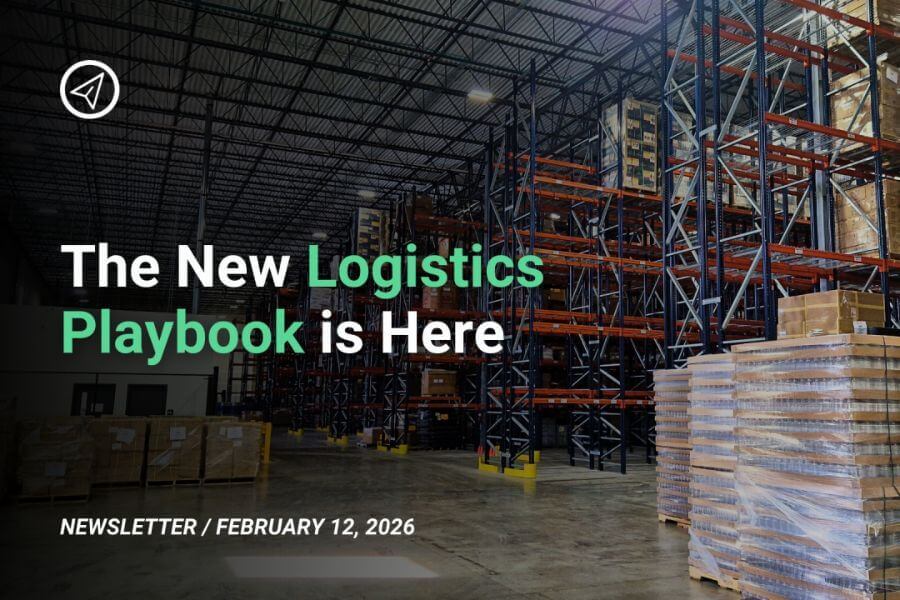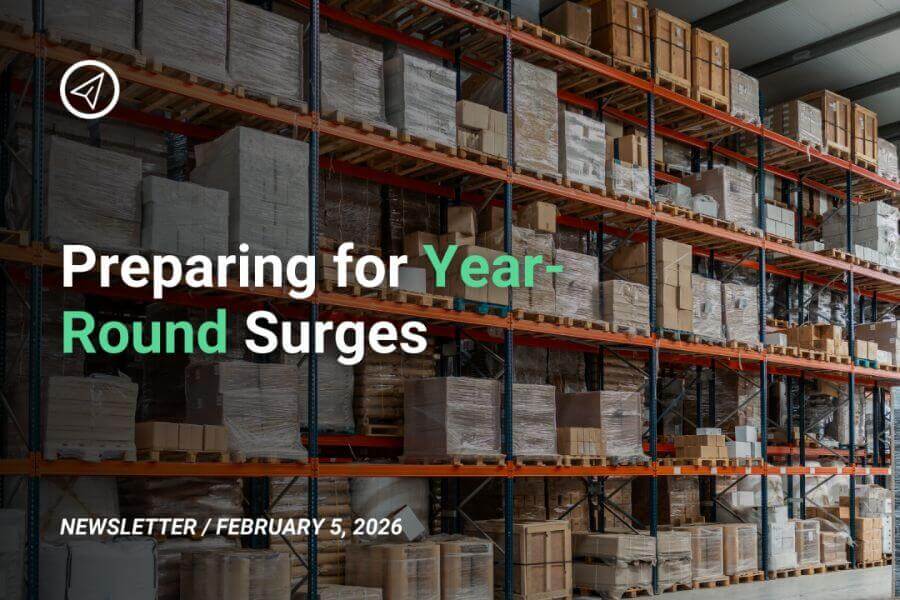It’s 2025 (nearly 2026), and shoppers have the right to demand fast delivery, accurate orders, and easy returns. Meeting these expectations can be challenging, particularly for growing ecommerce businesses that lack the infrastructure to manage order fulfillment in-house. This is where outsourced fulfillment, specifically through a third-party logistics (3PL) provider, becomes a powerful solution.
By leveraging a 3PL partner, ecommerce companies can scale faster, reduce costs, and focus on business growth rather than day-to-day logistics. This article explores the key benefits of outsourced fulfillment, when to consider 3PL assistance, common myths that often hold businesses back, and tips for choosing the right partner.
What is outsourced fulfillment?
Outsourced fulfillment involves delegating warehousing, inventory management, order picking, packing, and shipping to a 3PL company. Rather than handling logistics internally, the business relies on the expertise and infrastructure of a fulfillment partner to ensure that customer orders are processed efficiently and delivered on time.
Think of Simple Global, where your business easily and efficiently can:
- Pick, pack, ship, returns, and more
- All-in-one WMS solution
- Fully managed inventory & storage
- Competitive pick & pack rates

🚀 Key benefits of outsourced fulfillment
1. Scalability and flexibility
Ecommerce businesses often face unpredictable order volumes due to seasonal spikes, flash sales, or viral marketing campaigns. A 3PL can seamlessly scale operations up or down, eliminating the need for businesses to invest in temporary warehouses or additional staff.
2. Reduced costs
Operating an in-house fulfillment center is expensive, with costs for rent, labor, equipment, and carrier contracts. 3PL providers offer economies of scale, meaning they can often ship at lower rates and optimize costs across multiple clients.
3. Faster shipping times
Many 3PLs have a network of strategically located fulfillment centers. This allows ecommerce businesses to store inventory closer to customers, reducing delivery times and even enabling 2-day or same-day shipping, which is a key competitive advantage.
4. Access to cutting-edge technology
3PL companies invest in advanced warehouse management systems (WMS) and inventory tracking tools that integrate with popular ecommerce platforms like Shopify, Amazon, and BigCommerce. This level of automation and real-time tracking helps reduce human errors and improve customer satisfaction.
5. Enhanced focus on core business
By outsourcing logistics, business owners and teams can focus on high-value tasks such as marketing, customer acquisition, and product development instead of getting bogged down by day-to-day order fulfillment.
6. International shipping and global expansion
For ecommerce companies looking to sell internationally, 3PL partners can handle customs, tariffs, and international carrier relationships. This makes global expansion easier and faster.
When does an ecommerce business need 3PL assistance?
Not every business needs a 3PL from the start, but these signs indicate it’s time to consider outsourcing:
- Increasing order volume: You’re unable to keep up with order fulfillment, leading to delays and unhappy customers.
- High shipping costs: You’re struggling to get competitive shipping rates, hurting your margins.
- Space limitations: Your inventory has outgrown your existing storage or office space.
- Time constraints: Your team spends too much time packing orders instead of growing the business.
- International sales goals: You want to expand globally but lack the expertise or infrastructure.

Common myths about outsourced fulfillment
Despite its benefits, many ecommerce owners hesitate to work with 3PL providers due to misconceptions. Let’s debunk some common myths:
Myth 1: 3PL is only for large companies
Many small and medium-sized ecommerce businesses successfully use 3PL services. Modern 3PLs offer flexible pricing structures that scale with your business.
Myth 2: Outsourcing means losing control
With real-time inventory tracking and dashboard integrations, businesses have full visibility and control over orders and stock levels. A 3PL acts as a partner, not a replacement for oversight.
Myth 3: It's too expensive
When factoring in labor, warehouse costs, and carrier rates, 3PL solutions often save money in the long run by optimizing logistics and reducing operational inefficiencies.
Myth 4: All 3PLs are the same
3PLs vary widely in terms of technology, warehouse locations, and customer service. Choosing the right partner makes all the difference in ensuring smooth operations.
How to choose the right 3PL partner
Selecting the right 3PL is a critical decision that can significantly impact your business. Here are key factors to consider:
- Technology integration: Ensure the 3PL’s systems integrate seamlessly with your ecommerce platform.
- Warehouse locations: Look for strategically located fulfillment centers to reduce shipping times and costs.
- Scalability: Your 3PL should be able to handle peak seasons or unexpected spikes in demand.
- Reputation and reliability: Check reviews, case studies, and references to ensure the provider has a strong track record.
- Cost transparency: Choose a provider with clear, upfront pricing and no hidden fees.
🤔 The takeaway
Outsourced fulfillment and 3PL partnerships can transform the logistics challenges that ecommerce businesses face into growth opportunities. By offering scalability, reduced costs, faster delivery, and advanced technology, 3PLs empower businesses to focus on what they do best, building and growing their brand. For companies experiencing growing pains, rising shipping costs, or ambitious expansion plans, partnering with a reliable 3PL can be the key to staying competitive in an ever-changing online marketplace.





